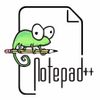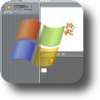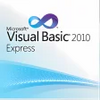A light program that's simple and fast to use to fix problems with the PC
A light program that's simple and fast to use to fix problems with the PC
Vote: (35 votes)
Program license: Free
Developer: Neil Hodgson
Version: 5.3.1
Works under: Windows
Vote:
Program license
(35 votes)
Free
Developer
Version
Neil Hodgson
5.3.1
Works under:
Windows
Pros
- Supports a wide array of programming languages
- Highly customizable interface
- Community-driven, open-source development
- Cross-platform support for Windows and Linux
- Lightweight and efficient performance
Cons
- Interface may feel outdated to some users
- May not be as welcoming for beginners
- Limited support for right-to-left languages
Emerging as a versatile code editor, SciTE offers a suite of features focused on programming and debugging. Its roots as a demonstrative application for the Scintilla source code editing component have evolved, enabling it to stand as a fully-fledged, multifaceted tool for developers.
Flexible Language Support
SciTE prides itself on a broad range of language support, much to the satisfaction of developers globally. Built on the robust foundations of C++, this editor seamlessly accommodates a myriad of other programming dialects. From the popular Python, Java, and JavaScript to more specialized ones like Haskell and Lua, SciTE serves a demographics far beyond those proficient in C-based languages. Such versatility invites a diverse community of developers working on various platforms, including both Windows and Linux systems.
Customizable User Interface
Despite its modest exterior, SciTE's user interface is a powerhouse of customization. A strong departure from the rigidity of traditional text editors, it opens doors to extensive personalization. This allows developers to tailor the editing experience to their specific workflows and preferences. Whether it's tweaking the color scheme for better readability or adjusting the toolbars for streamlined access to frequently used functions, SciTE gives users the control they crave.
The straightforward nature of SciTE's interface is a double-edged sword. For veterans in the programming community, its familiar layout is a canvas ready for modification. However, newcomers might find the interface to be antiquated, potentially steepening their learning curve. Though the search and replace functionality may evoke reminiscence of simpler text editors, experienced users often leverage custom scripts and configurations to elevate their coding experience well beyond the basics.
Platform Compatibility and Accessibility
SciTE's embrace of cross-platform compatibility is noteworthy. By offering versions for both Windows and Linux, it acknowledges the varied ecosystems in which today's developers operate. Moreover, its focus extends to support left-to-right written languages including Arabic, alongside English and European languages. However, users working with right-to-left scripts might find support to be lacking, an aspect that could merit improvement for a more inclusive coding environment.
Community-Driven Development
Another notable strength of SciTE is its open-source nature, fostering a community-driven development process. The editor's codebase is accessible to anyone with an interest in contributing enhancements, bug fixes, or new features. This level of openness not only ensures ongoing improvements and updates but also instills a sense of ownership and investment among its users.
Performance and Reliability
Performance-wise, SciTE is a nimble application free of the bloat that plagues more heavyweight Integrated Development Environments (IDEs). It boots quickly and handles large files with ease, ensuring swift navigation through codebases without lag or stutter. Its reliability is a testament to the focused design choices and efficient underpinnings of the Scintilla library.
Conclusion
In summary, SciTE stands out as a solid option for programming professionals who appreciate an editor that combines classic familiarity with the potential for in-depth customization. Its extensive language support and lean performance make it a worthy contender in the realm of code editors. However, its traditional interface may deter those new to programming or those accustomed to more modern-looking tools.
Pros
- Supports a wide array of programming languages
- Highly customizable interface
- Community-driven, open-source development
- Cross-platform support for Windows and Linux
- Lightweight and efficient performance
Cons
- Interface may feel outdated to some users
- May not be as welcoming for beginners
- Limited support for right-to-left languages




